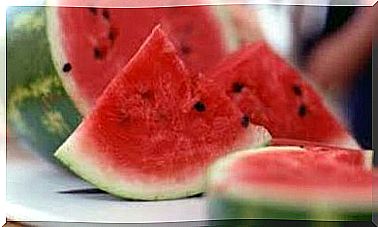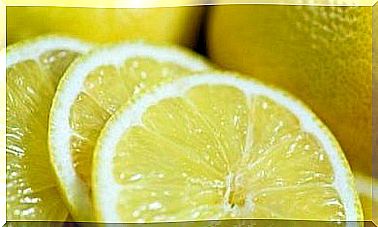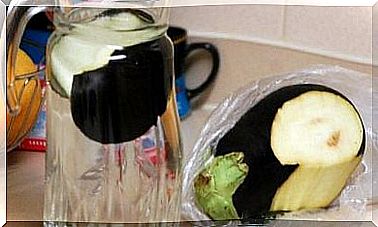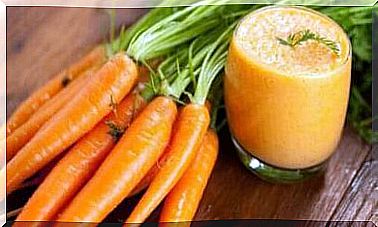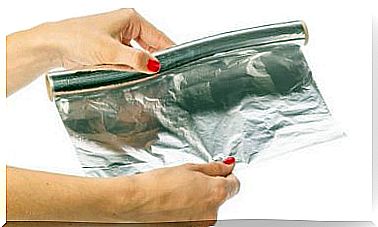7 Foods That Can Regulate The Salt Balance
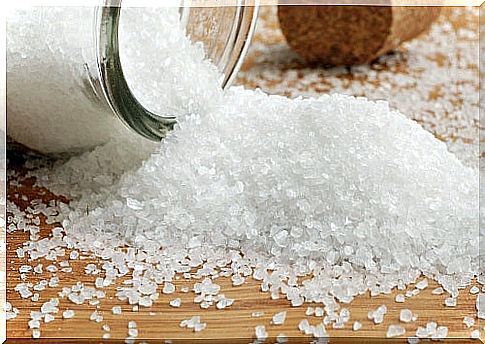
The main purpose is not to eat salt at all. Instead, one should aim to regulate the salt balance through the diet and always choose foods that are more fresh and natural.
It may sound strange, but there is pretty much salt in all the commercial, pre-cooked food that we eat daily. It involves the juice one buys and carbonated drinks. All this salt really has an effect on your kidneys, so it is important to know how to regulate the salt balance – and there are some foods that can help!
Too much salt can result in high blood pressure. But it also has other potential risks, such as bone, cardiovascular and skin problems.
It is always best to moderate the intake of salt, but that does not mean that one should exclude it completely. The art is, as with most things that deal with diet, moderation.
One must not forget that slat is very important for metabolism. It plays a role in muscle contraction and promotes the right Ph balance in the body.
In addition, large parts of this mineral are excreted by urination, defecation and sweating.
So the goal is not to consume too much, but still enough for the body to still perform its natural functions.
A good way to regulate the salt balance, for the sake of your kidneys, is to add some specific foods to its diet. Today we will show you 7 of them.
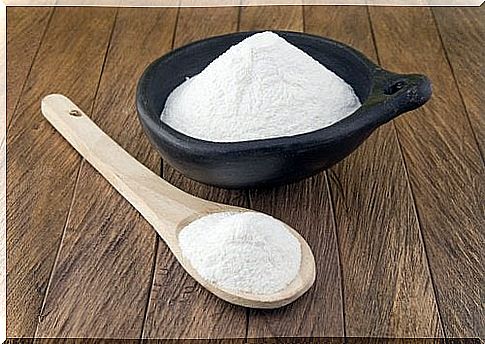
Foods that can regulate the salt balance and keep the kidneys healthy:
1. Pineapple
The main advantages of this fruit are its diuretic and anti-inflammatory properties.
- Pineapple is good for the lymphatic system and is rich in copper and manganese. These two minerals help to cleanse excess salt in the body.
- In addition, the content of bromelain and Vitamin C in it helps to reduce the inflammatory processes that can occur when too much salt builds up.
Always eat them fresh and avoid wrapped pineapple. And by simply using your imagination, you can put it in all sorts of different recipes.
Also read: 5 Amazing Benefits of Eating Pineapple
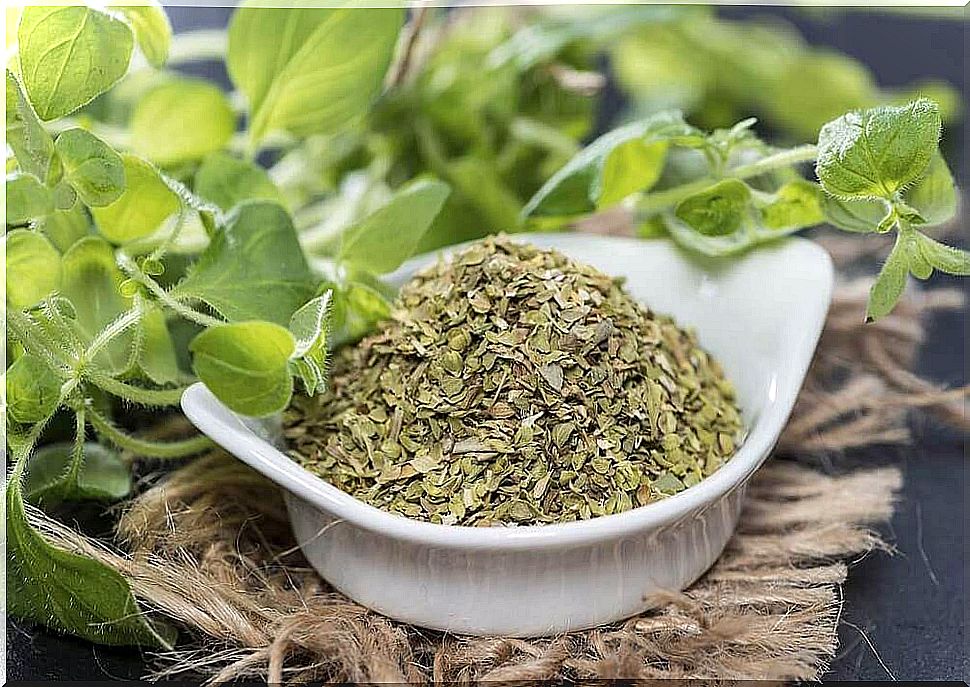
2. Oregano
Oregano can be a great spice and a substitute for salt. Remember: there is salt in all processed foods, even bread
One way to reduce the amount of salt in the bread you eat daily is to add a spoonful of olive oil with a little oregano. You will love the taste.
Plus, oregano contains beta-carophyllene (E-BCP), a substance that counteracts swelling and promotes blood circulation.
Do not hesitate to make it a staple of your diet.
3. Strawberries
Eating strawberries regularly will not only improve your health. It can also reduce uric acid, bad cholesterol (LDL) and regulate blood pressure.
Just remember that it should always be natural. Strawberry jam and juice probably contain lots of salt, even though it is so sweet that one should not believe it.
Ripe strawberries, like ripe raspberries, are richer in flavonoids than the frozen ones found in the store.
Do not hesitate to take advantage when in season and share the wonderful taste and the many benefits with the whole family.
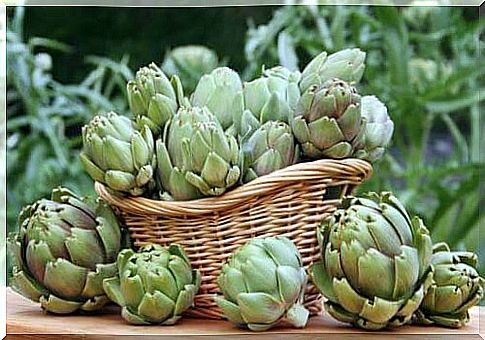
4. Artichokes
Artichokes balance blood pressure thanks to the many vitamins and low salt content.
They are delicious to eat with a little olive oil and lemon juice. This helps cleanse the liver and at the same time takes care of the kidneys, thanks to the acids, vitamins and enzymes that are in the combination of these foods.
5. Coriander
Coriander is a powerful and natural diuretic that one can benefit from by putting it in soups or salads. The intense, unique taste goes well with some dishes, where it can be a nice substitute for salt.
It also helps keep blood pressure down as it reduces the classic symptoms of high blood pressure such as headaches and migraines.
6. Garlic
Do you already have garlic salt in the kitchen? If not, do not hesitate to make a natural and effective ingredient, well for high blood pressure. It is a good way to regulate salt intake when using it in foods that are generally good for the kidneys.
Garlic is a medicinal food that everyone should have in the kitchen. It acts as an antibiotic, reduces high blood pressure and contains allicin, an enzyme that benefits both kidneys and liver.
Also read: Get stronger nails with garlic and oil lotion
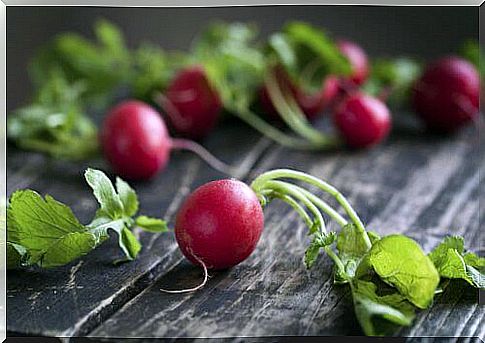
7. Radishes
Radishes have a characteristic, refreshing taste and have almost as good medicinal properties as garlic. This vegetable, which is very common in Indian cuisine, also has remarkable blood pressure lowering effects.
The secret lies in the content of ethyl acetate, a substance that is only beneficial when ingested naturally. It is worth chewing on the raw vegetable and getting over the intense taste. Do not forget the health benefits!
As we pointed out at the beginning, the goal is not to avoid salt. What to aim for is to regulate the salt balance and choose fresher, more natural foods for the sake of the kidneys. In other words, choose foods that make up a healthy addition to your diet.



